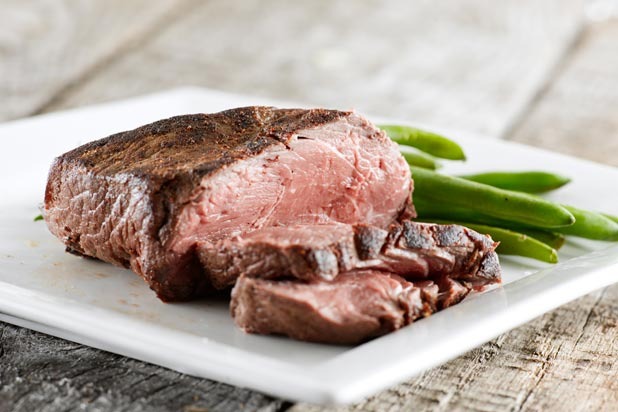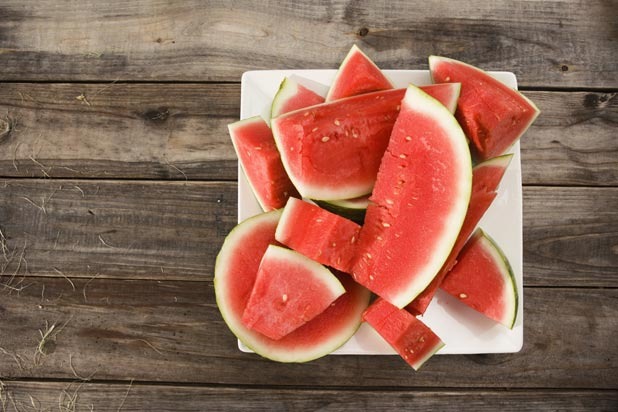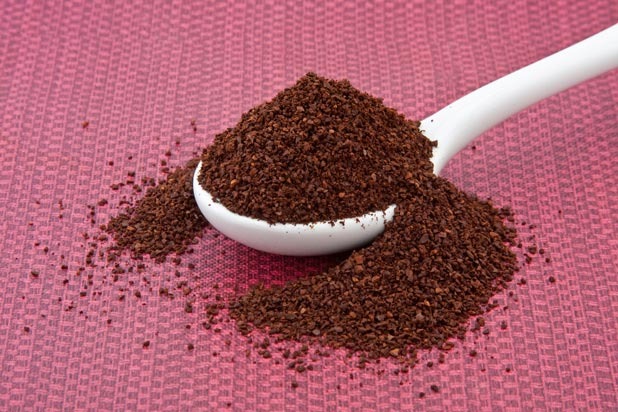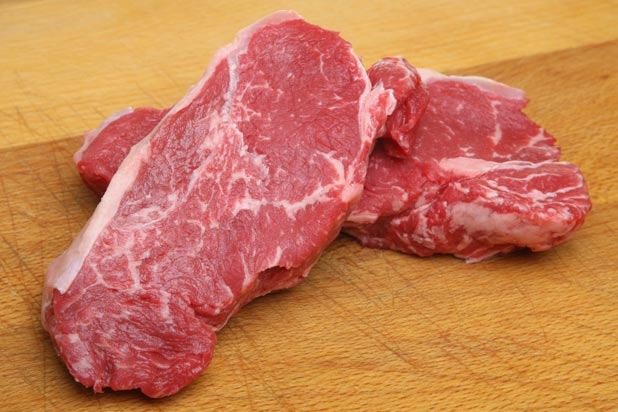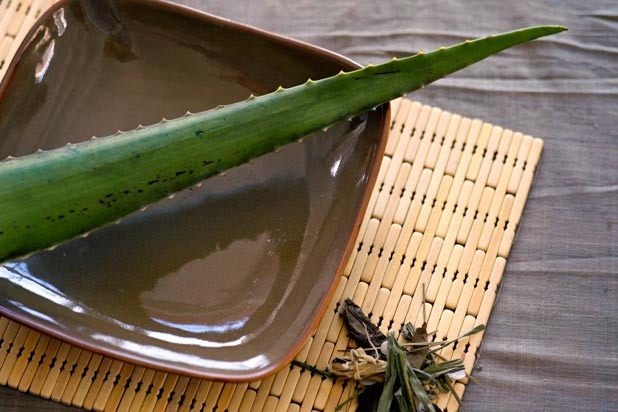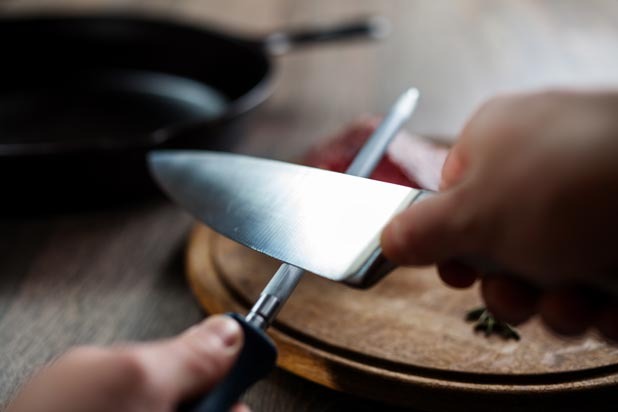Busting The Most Common Kitchen Myths Slideshow
Have you been living under the assumption that if you salt your water, you'll bring it to a boil faster? McKeller says that you're actually creating the opposite effect, because when you add salt to water, it raises the boiling temperature of water by a few degrees. While the degree change from adding salt is not drastic enough to affect how long it takes the water to boil, you're certainly not helping yourself by doing it.
A Perfectly Seared Steak Is a Perfectly Juicy One: MYTH
McKeller grew up in a family that liked their steaks well-done and so they would sear the steaks before grilling or roasting them to lock in the juices. After working in a steakhouse at the start of her career, she learned that this was wrong. Searing a steak locks in the flavor, not the juices. While she encourages you to rub your steak with spices and to give it a quick sear so you get a rich and flavorful steak, if you want to keep the juices, let it rest. Just a mere five minutes will help you achieve a tender and juicy piece of meat.
Salt Makes Watermelon Taste Sweeter: MYTH
Well, technically, this is true, but salt doesn't actually make your watermelon sweeter; instead it plays a role in creating a sweeter watermelon, McKeller says. The science behind this is that when you add salt to anything, it draws out the moisture, so drawing out a watermelon's water content makes it denser, its flavors more intense, and in most cases, sweeter. Another side effect of adding salt to your watermelon is that salt makes you salivate, so your watermelon tastes juicier and more flavorful with every bite.
Never Rinse Your Mushrooms: MYTH
"I love mushrooms, but after the first attempt at meticulously brushing them to get them clean, I began thinking: there has to be a better way," says McKeller. And she was right. While mushrooms are porous, giving them a quick rinse under the faucet won't destroy their genetic makeup, and as long as you're not soaking them for long periods of time, your mushrooms will retain their shape and flavor.
Store Your Coffee in the Freezer to Extend the Shelf Life: MYTH
McKeller is all for coffee — she drinks it regularly and a bag of it usually lasts her a week. For those of you trying to extend your coffee's life for longer than that, the freezer is not a good option, she warns. Coffee is porous, so it can absorb the moisture — and odors — of your freezer, leaving your coffee tasting anything but fresh. Storing it in a dry, cool place is the best way to keep your coffee fresh, she says.
Don’t Cut Meat on a Wooden Cutting Board: MYTH
People warn against cutting your meat on a wooden cutting board because the wood's pores can absorb the juices and bacteria from the raw meat you're working with. The truth is, says McKeller, that as long as you properly clean and sanitize your cutting boards, it shouldn't matter what you're working with. While some chefs like to designate colored, plastic cutting boards for working with meat, your wooden one is just fine. McKeller uses a vinegar and water solution to sanitize her cutting boards.
Aloe Plants Should Always Be Kept in the Kitchen to Treat Burns: MYTH
Although aloe is definitely soothing and can help treat minor burns, it shouldn't be something you rely on for treatment, says McKeller. Aloe does not contain any antibacterial properties, so a burn — whether small or big — could get infected. Always see a physician if you've suffered from a burn, she says.
Adding Glass Marbles to Simmering Milk or Heavy Cream Will Keep It From Boiling Over: MYTH
There's no scientific proof that marbles actually prevent dairy products from boiling over, says McKeller, but an easier way to avoid this is by using a ceramic pot minder. Whether or not the marbles work, she says, it's not worth the risk of shattered glass and contamination in your food that goes along with using them.
The Sharper the Knife, the Easier It Is to Cut Yourself: MYTH
This one is pretty counterintuitive, but the duller your knife is, the more likely it is that you'll cut yourself, says McKeller. Sharp knives allow you to make cuts more easily and with less force, so if there is a slip of the knife, you're not exerting all of your pressure, like you would with a dull knife. Along with that, when you're working with a sharp knife, you know it's sharp, so are generally more cautious when using it. The only way to prevent cutting yourself, says McKeller, is to take a class in knife skills to be as skillful as the pro's — who, by the way, still cut themselves sometimes.

